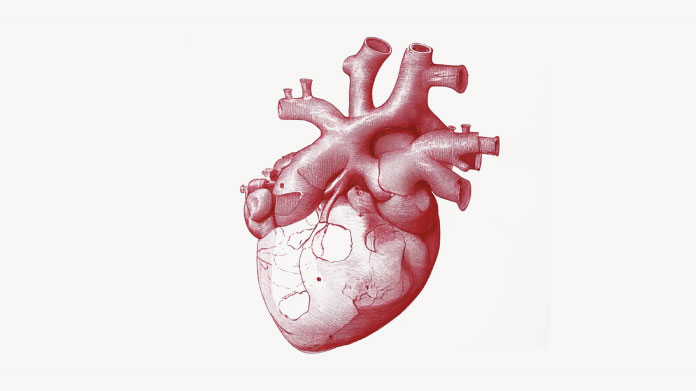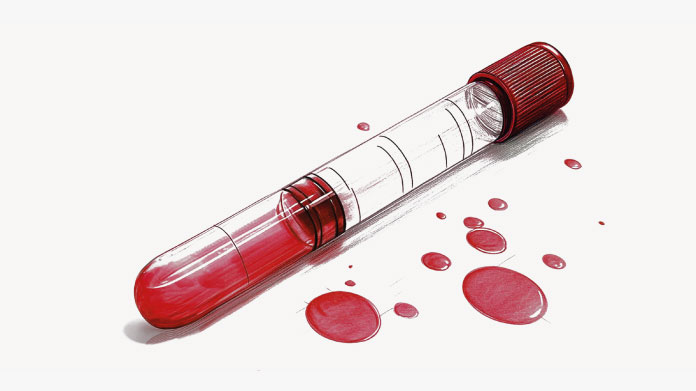Which are the best supplements for lowering blood sugar levels (glycaemia) in pre-diabetic or diabetic individuals?
Which are the best supplements for lowering blood sugar levels (glycaemia) in pre-diabetic or diabetic individuals?

Question:
Which are the best supplements for lowering blood sugar levels (glycaemia) in pre-diabetic or diabetic individuals?
Answer:
If there’s one area where dietary supplements are really effective it’s this one. There are numerous substances, mostly natural-source, which are capable of reducing glycaemia and improving daily life for those with diabetes. In the main, these supplements help to lower blood sugar levels via three different mechanisms:
- They increase secretion of the pancreatic hormone which makes it easier for blood sugars to be absorbed into cells.
- They stimulate glycolysis, a process in which sugar is broken down to produce energy.
- They slow down the synthesis of glucose in the liver from non-carbohydrate reserves (a process known as gluconeogenesis).
Berberine: undoubtedly the most impressive
Berberine is the major component in several plants used in traditional medicine such as Rhizoma coptidis and Berberis vulgaris (barberry). It’s probably the most effective natural remedy for lowering glycaemia.
Blood tests show it is able to reduce fasting and post-prandial blood sugar levels (the latter is glycaemia measured after a meal), as well as having a positive effect on weight (1-4).
A recent study showed that taking 500mg of berberine twice a day for three months produced dramatic improvements in fasting and post-prandial blood sugar levels, and in levels of Hba1c (the best indicator of glycaemia over a given period) (5). In another study, berberine was found to be at least as effective as the most commonly-prescribed diabetes drug (6).
In February 2015, a meta-analysis (7), which is a ‘super-study’ that reviews all the serious research published on a subject, confirmed the efficacy of berberine for “improving type 2 diabetes”, “improving hyperlipidaemia” and even “reducing hypertension”, without causing the slightest side effect! This ‘super-study’ drew on 27 clinical trials - tests conducted directly on humans.
The correct dose: one capsule of berberine 500 mg taken just before or after the two main meals of the day.
Vitamin D: an absolute must, especially for those who are overweight
Although vitamin D is an organic substance which is vital for the body if it is to function properly, close to 80% of Western populations and almost all those over 60 do not reach recommended intakes.
In addition to the key role it plays in calcium absorption, vitamin D reduces the risk of pancreatic hormone resistance, a pathological process which occurs in diabetics and aggravates the disease. This beneficial effect may be more marked in overweight individuals: a study has shown that obese people with inadequate vitamin D levels had a 12-fold increased risk of pancreatic hormone resistance (8).
But this effect is seen in ‘healthy’ people too: subjects in good health who took vitamin D3 (420IU/day for one year) saw their vitamin D blood levels rise (from 13ng/ml to 24ng/mL), their fasting glycaemia decrease (from 88.3mg/dL to 85.3mg/dL) and their pancreatic hormone resistance improve significantly (from 1.17 to 0.84) (9). Another study showed that taking at least 500IU vitamin D a day lowered the risk of developing type 2 diabetes by between 10% and 40% depending on initial levels of circulating vitamin D (10).
The correct dose: one tablet a day of vitamin D3 1000IU for at least three months, ideally over the winter period to compensate for the lack of sunshine.
Ginseng: a tonic which also reduces glycaemia
Lowering blood sugar levels is not the primary benefit of ginseng: it’s known more for being able to revitalise the body and stimulate the immune system in weak or fatigued individuals.
But there’s clear evidence from clinical trials of this glycaemic-lowering property: a study of older type 2 diabetics showed that daily supplementation with an extract standardized to 10% ginsenosides (3 x 1g/day for two months, taken 40 minutes before each meal) reduced fasting glycaemia (- 0.71 mmol/L) (11) and HbA1-c levels (-0.3%). Another study showed that standardized ginseng was also able to reduce post-prandial blood glucose levels without either altering pancreatic hormone secretion or causing any side-effects (12).
The correct dose: 3-4 capsules of Ginseng standardized to 30% ginsenosides (the active principles), taken a short time before meals.
Chromium: a mineral which increases the action of the pancreatic hormone
Chromium is a trace-element which the body needs in order to function properly. One of its features is the ability to increase tissue pancreatic hormone sensitivity which helps reduce levels of sugar and pancreatic hormone in the blood. Unfortunately, intensive farming methods and modern refining reduce the chromium content of food … In addition, epidemiological studies show that chromium levels decline with age and this is associated with the development of type 2 diabetes.
A meta-analysis of 41 clinical trials on chromium supplementation (using doses ranging from 1 to 1000 µg over periods of between 3 and 8 months) confirmed its efficacy for reducing fasting glycaemia and HbA1c levels in diabetic subjects (13).
The correct dose: 2 capsules of Crominex® 3+ (ie 2 x 400µg) following the two main meals of the day.
Alpha-lipoic acid: the universal super-antioxidant for longer-term diabetics
Present in every cell in the body, alpha-lipoic acid (ALA) is aimed more at ‘damage limitation’ in those who have been suffering from diabetes for several years.
Oral administration of ALA reduces symptoms of diabetes-induced neuropathy such as pain, numbness and tingling in the legs. But a recent study has shown that 300-1200mg a day may equally improve pancreatic hormone sensitivity and reduce blood sugar levels in type 2 diabetics (14).
The correct dose: 3 capsules of R-lipoic acid (3 x 100mg) spread over the day, for a period of several months.
To a lesser degree, the following are also effective at reducing glycaemia: curcumin, dietary fibre, extracts of Gymnema sylvestre and silymarin.
Conversely, these substances should be avoided if you want to reduce blood glucose: niacin, digestive enzymes, CLA (conjugated linoleic acid), krill oil and vitamin C.
References
- Yin, J., Xing, H., and Ye, J. 2008. Efficacy of berberine in patients with type 2 diabetes mellitus. Metabolism, 57(5): 712–717. doi:10.1016/j.metabol.2008.01. 013. PMID:18442638.
- Zhao, W., Xue, R., Zhou, Z.X., Kong, W.J., and Jiang, J.D. 2008. Reduction of blood lipid by berberine in hyperlipidemic patients with chronic hepatitis or liver cirrhosis. Biomed. Pharmacother. 62(10): 730–731. doi:10.1016/j.biopha.2008. 01.007. PMID:18337056
- Banach, M., Patti, A. M., Giglio, R. V., Cicero, A. F. G., Atanasov, A. G., and Bajraktari, G., et al. (2018). The role of nutraceuticals in statin intolerant patients: position paper from an international lipid expert panel. J. Am. Coll. Cardiol. 72, 96–118. doi: 10.1016/j.jacc.2018.04.040
- Zhang, Y., Li, X., Zou, D., Liu, W., Yang, J., Zhu, N., … Ning, G. (2008). Treatment of Type 2 Diabetes and Dyslipidemia with the Natural Plant Alkaloid Berberine. The Journal of Clinical Endocrinology & Metabolism, 93(7), 2559–2565. doi:10.1210/jc.2007-2404
- Yin, J., Xing, H., & Ye, J. (2008). Efficacy of berberine in patients with type 2 diabetes mellitus. Metabolism, 57(5), 712–717. doi:10.1016/j.metabol.2008.01.013
- Lan, J., Zhao, Y., Dong, F., Yan, Z., Zheng, W., Fan, J., & Sun, G. (2015). Meta-analysis of the effect and safety of berberine in the treatment of type 2 diabetes mellitus, hyperlipemia and hypertension. Journal of Ethnopharmacology, 161, 69–81. doi:10.1016/j.jep.2014.09.049
- J Mitri , MD Muraru and AG Pittas, Vitamin D and type 2 diabetes: a systematic review, European Journal of Clinical Nutrition (2011) 65, 1005–1015
- Vuksan, V., Xu, Z. Z., Jovanovski, E., Jenkins, A. L., Beljan-Zdravkovic, U., Sievenpiper, J. L., … Li, M. Z. C. (2018). Efficacy and safety of American ginseng (Panax quinquefolius L.) extract on glycemic control and cardiovascular risk factors in individuals with type 2 diabetes: a double-blind, randomized, cross-over clinical trial. European Journal of Nutrition. doi:10.1007/s00394-018-1642-0
- Park, S.-H., Oh, M.-R., Choi, E.-K., Kim, M.-G., Ha, K.-C., Lee, S.-K., … Chae, S.-W. (2014). An 8-wk, randomized, double-blind, placebo-controlled clinical trial for the antidiabetic effects of hydrolyzed ginseng extract. Journal of Ginseng Research, 38(4), 239–243. doi:10.1016/j.jgr.2014.05.006
- Balk, E. M., Tatsioni, A., Lichtenstein, A. H., Lau, J., & Pittas, A. G. (2007). Effect of Chromium Supplementation on Glucose Metabolism and Lipids: A systematic review of randomized controlled trials. Diabetes Care, 30(8), 2154–2163. doi:10.2337/dc06-0996
- Supatra Porasuphatana PhD , Suthi Suddee MD , Atinuch Nartnampong MSc , Julraht Konsil PhD , Busakorn Harnwong B.Pharm , Adichai Santaweesuk BSc. Glycemic and oxidative status of patients with type 2 diabetes mellitus following oral administration of alphalipoic acid: a randomized double-blinded placebocontrolled study. Asia Pac J Clin Nutr 2012;21 (1):12-21
Keywords
1 Days
First bottle has been finished
First bottle has been finished. 2 bottles remaining for 3 month time frame trial as recommended
CORCORAN Pamela
6 Days
repeat customer
recommended by my doctor. easy to create an account. Discounts and specials are appreciated. packaging and delivery is dependable. Capsules easy to digest. I've had some some capsules and tablets that are broken inside their bottles.
Kokee
10 Days
Order was shipped on time and packaged…Wonderful Jobs!
Order was shipped on time and packaged excellently.
DMHoge
17 Days
great products and prices
great products and prices
Marie
23 Days
Easy to navigate site
Easy to navigate site, had what I was searching for, good price. easy order-check out
James Tucker
29 Days
My skin is clearing up nicely!
Pretty good for my skin so far.
Christian
31 Days
The new packaging is excellent
The new packaging is excellent - finally! No more squashed boxes and torn envelopes.
GORAN
32 Days
Great Product
Great Product
Larry Garrett
36 Days
Quick shipping
Quick shipping; good price. No issues!
Mary McCarty
38 Days
Thr product is very good and is helping…
Thr product is very good and is helping me on my health. Then is always on time
LUGO Luz
40 Days
Buying was fine
Buying was fine. I had problems with the website not recognizing my login info, and had to call to get it fixed. Other than that, everything was good.
David S. Clark
40 Days
Your super maca and super ginseng are…phenomenal
Your super maca and super ginseng are phenomenal supplements that compliment each other when taking them together. Fantastic feeling of well-being and lots of mid day energy without the crash.
Keith Mason
43 Days
I have had amazing results with every…
I have had amazing results with every supplement I've purchased. I am extremely satisfied with this company
kirstin Torres
43 Days
Fine products
Fine products . They are on the leading edge of online supplements. The only issue -so far-is they sometime run out of subscription items.
Jason Argos
46 Days
The ordering process is very user…
The ordering process is very user friendly and the products always come in a timely manner.
CARTER Rhonda




